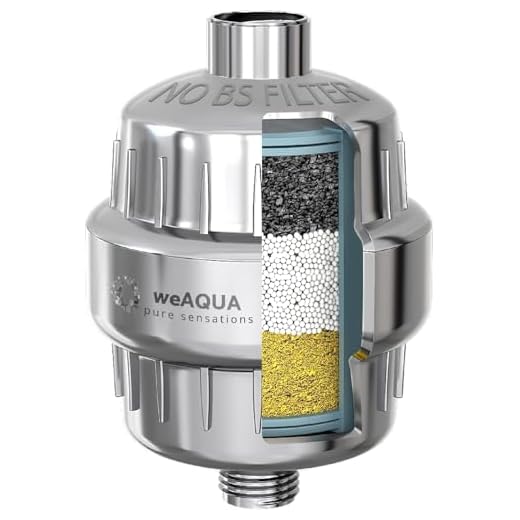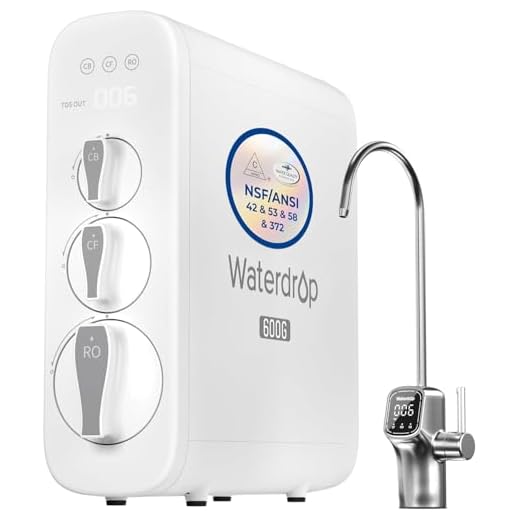




The Role of UV Filters
Ultraviolet filters utilize the power of UV light to eliminate harmful microorganisms from drinking water. This technology acts by disrupting the DNA of bacteria, viruses, and protozoa, rendering them incapable of reproduction and infection. The effectiveness of UV filters is notable as they do not introduce any chemicals into the water, making the treatment process environmentally friendly and safe for consumption.
The design of UV filtration systems is inherently simple, typically involving a UV lamp housed within a transparent chamber where water flows through. This method ensures rapid purification, as water is treated instantly as it passes through the system. Additionally, UV filters require minimal maintenance and do not affect the taste or odor of the water, offering a practical solution for households seeking clean drinking water.
Effectiveness of Ultraviolet Light in Water Purification
Ultraviolet light has proven to be a highly effective method for purifying water. This technology works by emitting UV rays that penetrate the cells of microorganisms, rendering them unable to reproduce and effectively killing them. As a result, it targets harmful pathogens such as bacteria, viruses, and protozoa that may be present in water sources. Unlike traditional methods, UV purification does not rely on chemicals, making it a more environmentally friendly option for water treatment.
The efficiency of ultraviolet light in purifying water depends significantly on factors such as the intensity and duration of exposure. Water must be clear for UV light to work effectively; turbidity can impede the process by shielding contaminants from the rays. For optimal results, the water flow rate also needs to be managed carefully. When integrated into home water filtration systems, UV filters ensure a reliable supply of clean water, contributing to better hydration and overall health.
Chemical Filters and Their Applications
Chemical filters play a vital role in enhancing water quality by targeting specific contaminants that physical filtration methods may overlook. These filters often utilize substances like activated carbon or ion exchange resins to remove impurities. Activated carbon is particularly effective in adsorbing chlorine, sediments, and volatile organic compounds, which can affect the taste and safety of drinking water. Ion exchange systems are employed to reduce hardness levels by swapping calcium and magnesium ions for sodium or potassium ions, thus improving the overall palatability of the water.
The versatility of chemical filters enables them to be tailored for various applications, from individual home use to large-scale municipal water treatment. In urban settings, these filters can tackle issues such as lead contamination or pesticide runoff, ensuring that drinking water remains safe and clean. Moreover, the application of chemical treatments extends to specialized industries, including food and beverage production, where stringent quality standards demand the highest degree of purity. By addressing a broad spectrum of harmful substances, these filters contribute significantly to public health and safety.
How Chemical Treatments Remove Harmful Substances
Chemical treatments in water filtration systems play a crucial role in eliminating harmful contaminants. Various agents, such as chlorine and ozone, are commonly used for disinfection purposes. These substances effectively neutralize bacteria, viruses, and other pathogens, making the water safer for consumption. Additionally, chemical processes can target specific pollutants, including heavy metals and pesticides. This targeted approach ensures that water quality meets health standards.
Activated carbon is another popular chemical treatment that enhances water purification. This method relies on the porous structure of carbon, which adsorbs impurities from the water. Contaminants such as chlorine, volatile organic compounds (VOCs), and unpleasant odors are effectively removed through this process. By employing a combination of chemical treatments, water filters can provide a comprehensive solution, ensuring that consumers receive clean and safe drinking water.
Economic Advantages of Using Water Filters
Using water filters can lead to significant economic advantages for households and businesses. The initial investment may seem substantial, but over time, the savings become evident. Individuals often find themselves spending large amounts on bottled water, which can accumulate rapidly. A reliable water filter system can provide clean, tasty water at a fraction of the ongoing cost associated with purchasing bottled products.
Moreover, the reduction in plastic waste contributes to cost savings when it comes to environmental fees. Many municipalities impose penalties for excessive plastic waste, which can further strain budgets. By opting for a water filtration system, consumers not only benefit financially but also engage in more sustainable practices. The convenience and quality offered by filters ensure that people have access to safe drinking water without the repeated expense of individual bottles.
Long-Term Cost Savings Compared to Bottled Water
Investing in water filtration systems can lead to significant savings over time compared to purchasing bottled water. A single filter can often provide thousands of gallons of purified water, while bottled water costs can accumulate quickly, especially for families or individuals consuming multiple bottles each day. The price of bottled water varies, but it generally carries a markup due to packaging and distribution costs, making daily consumption prohibitively expensive in the long run.
In addition to the financial benefits, using a water filter can also minimize environmental impact. Each bottle of water contributes to plastic pollution, and the production processes often consume vast amounts of energy and resources. By opting for a filtration system, consumers not only save money but also reduce their reliance on single-use plastic, aligning their hydration habits with more sustainable practices. Over time, this transition can lead to both economic and ecological advantages.
FAQS
What are the main benefits of using water filters for hydration?
Water filters help remove impurities and contaminants from drinking water, improving its taste and quality, which can encourage better hydration habits.
How do UV filters work in water purification?
UV filters use ultraviolet light to disinfect water by destroying bacteria, viruses, and other microorganisms, making the water safe to drink.
What types of harmful substances can chemical filters remove?
Chemical filters, such as activated carbon, can effectively remove chlorine, heavy metals, pesticides, and other harmful substances from water.
Are water filters cost-effective compared to bottled water?
Yes, using water filters can lead to significant long-term cost savings as they reduce the need for purchasing bottled water, which can be more expensive over time.
How often should I replace my water filter?
The frequency of replacement depends on the type of filter and usage, but generally, it’s recommended to replace water filters every 6 months to 1 year for optimal effectiveness.
Related Links
What Role Do Water Filters Play in Preventing Illness?
How Using Water Filters Can Improve Your Skin Health

